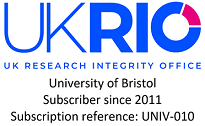Concordat to support research integrity
The Concordat to support Research Integrity (PDF, 372kB) was initially launched in July 2012 with support from major stakeholders in research. The revised concordat to support research integrity, published on 25 October 2019, is an updated version of the first concordat published in 2012.
The concordat responds to recommendations set out in the Science and Technology Committee's report on research integrity, published in July 2018. The signatories are Cancer Research UK, Department for the Economy, Northern Ireland, Higher Education Funding Council for Wales, National Institute for Health Research, Scottish Funding Council, The British Academy, UK Research and Innovation, Wellcome Trust and GuildHE Research.
Signatories of the Concordat committed to:
- upholding the highest standards of rigour and integrity in all aspects of research
- ensuring that research is conducted according to appropriate ethical, legal and professional frameworks, obligations and standards
- supporting a research environment that is underpinned by a culture of integrity and based on good governance, best practice and support for the development of researchers
- using transparent, timely, robust and fair processes to deal with allegations of research misconduct should they arise
- working together to strengthen the integrity of research and to reviewing progress regularly and openly
The Concordat outlines what is expected of researchers, their employers and the funders of research to ensure the highest standards
The University of Bristol's Annual Statement on Research Integrity provides more information on the University’s commitment to research integrity and to the Concordat.
Signatories to the Concordat committed to produce annual statements on the Concordat, including the UKRI statement.
If you have any questions, suggestions or concerns about research integrity at the University of Bristol, please email: research-ethics@bristol.ac.uk.
Information about UKRIO

The University of Bristol has been a subscriber to the UK Research Integrity Office since 2011.
What is the UK Research Integrity Office?
The UK Research Integrity Office is an independent advisory body, offering support to the public, researchers, and organisations to further good practice in research. A registered charity, it was created in response to longstanding and growing concerns about the reliability of research.
UKRIO is the UK’s most experienced research integrity organisation. Since 2006, it has provided independent and expert support across all disciplines of research, from the arts and humanities to the life sciences. It works to enhance good research practice, address mistakes, questionable practices and fraud, and improve the culture and systems of UK research.
What is research integrity?
Research integrity is another name for ‘good research practice’. It is the conduct of research in ways that promote trust and confidence in all aspects of the research process.
Research integrity covers all research and the whole lifecycle, from the initial idea and design of the project through to the conduct of the research and its dissemination. It also covers making sure that environments and systems for research safeguard and enhance good research practice, rather than hinder it – often described as ‘research culture‘.
See the UKRIO website for more about research integrity.
What can UKRIO offer researchers?
Education – guidance and support through publications on research practice, training activities and a comprehensive events programme
Sharing best practice – clear and honest development for the research community through facilitated discussions about key issues, informing national and international initiatives, and working to improve research culture.
Expert guidance – confidential and expert advice and guidance, as a proactive service for both institutions and individual researchers, as well as in response to requests for assistance.
- Get confidential advice on research integrity and research culture issues for example achieving good practice, publication ethics, research misconduct, research ethics, conflicts of interest and improving research culture.
World Conferences on Research Integrity
The World Conferences on Research Integrity (WCRIF) foster the exchange of information and discussion about responsible conduct of research. The mission of the WCRIF is to promote research integrity through support for the ongoing organization and development of the World Conferences and all related activities. Past WCRIFs have resulted in some important sectoral documents, developments and recommendations:
Cape Town Statement
The Cape Town Statement on Fostering Research Integrity through Fairness and Equity advocates for fair practice from conception to implementation of research and provides 20 recommendations aimed at all involved stakeholders. It was published in March 2023 following the 7th World Conference on Research Integrity.
Hong Kong Principles
The Hong Kong Principles for assessing researchers: Fostering research integrity were 5 principles chosen to recognise and reward researchers for behaviour that leads to trustworthy research practices and avoids questionable ones. It was published in July 2020 after the principles were formulated at the 6th World Conference on Research Integrity in June 2019.
Amsterdam Agenda
The Amsterdam Agenda aimed to promote discussion and coordinate efforts to improve research integrity on a global scale, featuring 4 main points and 6 key elements. It was the agenda for the 5th World Conference on Research Integrity in August 2017.
Montreal Statement
The Montreal Statement on Research Integrity on Cross-boundary Research Collaborations outlines 20 different responsibilities of individual and institutional partners in Cross-Boundary research collaborations. It was an outcome of the 3rd World Conference on Research Integrity in May 2013.
Singapore Statement
The Signapore Statement represents the first international effort to encourage the development of unified policies, guidelines and codes of conduct, with the long-range goal of fostering greater integrity in research worldwide. It was published in September 2010 following the 2nd World Conference on Research Integrity. It set out 4 key principles and 14 recommendations.
